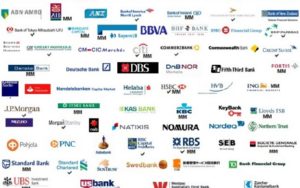The financial institution that is best for your needs will be determined by the complexity and cost of your financial transaction types. Every bank or credit union has strengths and weaknesses, and these do change over time. There is a spectrum of services that banks offer and I periodically review and interview banks to determine if I should alter where I do some or all of my banking.
There is no one-size-fits-all all bank to keep everyone happy. There are local banks, regional banks, large money center banks, and a similar variation in credit unions. On one end you have the three largest U.S. banks – Wells Fargo, Chase, and Bank of America. They have the most resources, most technology offerings, and also the most expensive fees. Begin by matching up your needs with the banking fee schedule. Most bank websites have a fee schedule; access that to scan for the prices of services you’ll expect to be using. The next step is to list all of the features, amenities, and services that you require, and make sure that those can be adequately met by the bank. For example, one item I insist upon is next-day check clearing (banks don’t start this until a brand-new account has been open for 30-45 days). However, many banks physically cannot offer less than 2 or 3-day check clearing, ever. Another feature I prefer is a smart-phone app check deposit capability with a limit above $10,000. Only by putting all of these puzzle pieces together you can you arrive with best offering to meet your needs.
I had an account at a large bank and it seemed like if I glanced in their direction I was charged another $50. However, I was once in Asia when I had to wire 2,500 Euros to an Italian law firm within 24 hours. It was just a few online steps with my large bank – no regional or small bank could have possibly accommodated this. In another example, I interviewed a large regional bank and they were “going to debut a mobile app probably this summer,” while my primary bank account has had one for 9 years.
Even for a small business with simple transactions, research pays off. For example, earlier this year I prompted a colleague to move from a large bank to a credit union business checking account. At the prior bank, she was paying $588 a month in fees. But the credit union cost for her is now only $375 per month. Switching banks saves her nearly $2,600 a year. Was that worth 2 days of research? I think so.
Be aware that there are a few large banks and credit unions are that are removing some or all of their tellers and replacing them with super-ATMs. These new machines can perform all kinds of transactions, even allowing customers to speak to a live teller for additional services. If this doesn’t appeal to you, then you may want to confirm whether tellers will remain. One branch I interviewed reluctantly revealed their plans to eliminate their tellers soon, but only after I asked them about it.
Remember that bank policies and procedures change over time; some become more relaxed, some become more restrictive. These changes may prompt you to start a new bank search. One word the banking industry loves is “relationship.” Banks always want to upsell you with more accounts and services (relationships) because you’ll be less likely to leave them. I use the word a lot when I’m interviewing banks so they offer me more perks and benefits; you should, too. But if they no longer meet my needs best, then I move on without hesitation.

